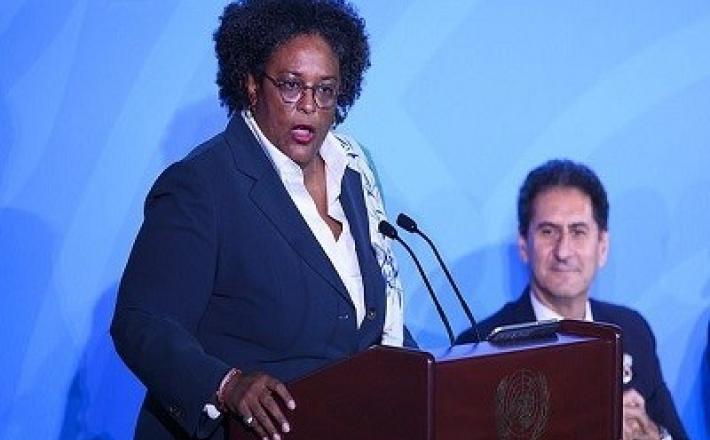Women make better leaders than men -female Prime Minister of Barbados
Source: Tale Tela
According to Mia Mottley, the first female Prime Minister of Barbados, women make better leaders than men because they are more caring’ and run their country ‘like a family household’.
The 54 year old Barbadian politician Mia had appeared on Good Morning Britain today with former Prime Minister of Denmark, Helle Thorning-Schmidt and the former Prime Minister of Australia, Julia Gillard to debate on better leadership between men and women.
Speaking on the show, Mia Mottley said;
I think the issue is more really how women operate in terms of caring,’ said Mia. ‘And in many instances, we treat issues how we would treat the household and the family.
‘Not in a negative way, in a way that recognises unless you drill down to things and see where you are in respect to how people are operating, and recognise how people are feeling and listening to you, you cannot change behaviour.
‘In this circumstance, it’s behaviour that can contain the virus, these things tend to reflect more because we will pause and not just look at it academically, but think how will it impact the people who are hurting.’
Click here to read the full article published by Tale Tela on 3 September 2020.

According to Mia Mottley, the first female Prime Minister of Barbados, women make better leaders than men because they are more caring’ and run their country ‘like a family household’.
The 54 year old Barbadian politician Mia had appeared on Good Morning Britain today with former Prime Minister of Denmark, Helle Thorning-Schmidt and the former Prime Minister of Australia, Julia Gillard to debate on better leadership between men and women.
Speaking on the show, Mia Mottley said;
I think the issue is more really how women operate in terms of caring,’ said Mia. ‘And in many instances, we treat issues how we would treat the household and the family.
‘Not in a negative way, in a way that recognises unless you drill down to things and see where you are in respect to how people are operating, and recognise how people are feeling and listening to you, you cannot change behaviour.
‘In this circumstance, it’s behaviour that can contain the virus, these things tend to reflect more because we will pause and not just look at it academically, but think how will it impact the people who are hurting.’
Click here to read the full article published by Tale Tela on 3 September 2020.